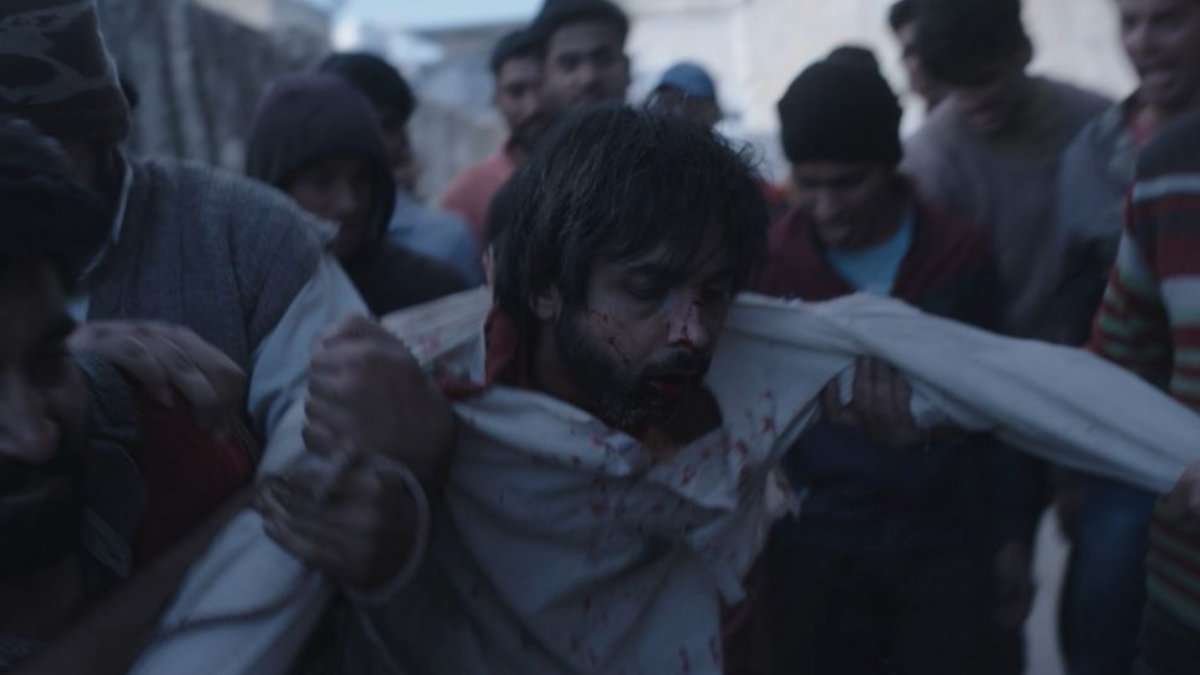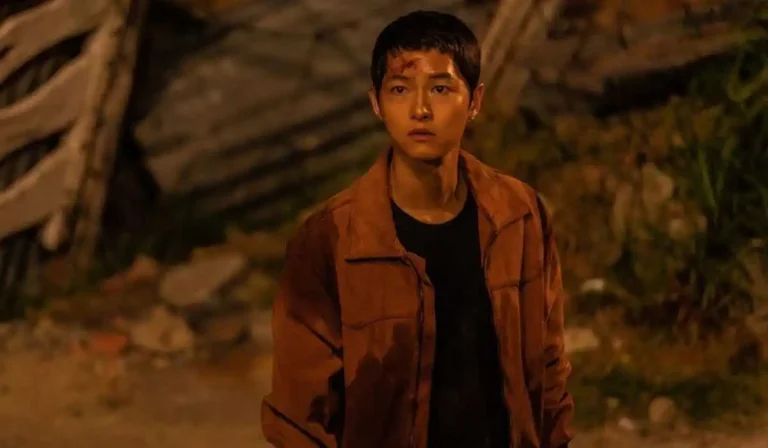One of the more interesting revelations of the 2023 edition of the JIO MAMI Mumbai Film Festival so far has been the way in which Indian filmmakers are employing genre templates in their storytelling but then subverting the audience’s expectations regarding what to expect from that genre. Devashish Makhija’s ‘Joram’ subverts the expected beats of the survival thriller genre to ask probing questions about tribal displacement and who bears the moral responsibility of the disenfranchisement that is caused by unchecked post-capitalist forces.
Varun Grover’s debut feature, ‘All India Rank,’ explores the dangers of nostalgia through a coming-of-age narrative, looking back with a critical and introspective lens at some of the fault lines within the social fabric of our society that have only increased with time. Director Karan Tejpal’s debut feature ‘Stolen’ is another film of this ilk, using the overarching structure of a conventional genre film – a survival thriller – to explore how privilege can blind somebody to social evils that exist within our society because those evils will never impact the privileged.
Tejpal’s film opens with a didactic explanatory card – a weird enmeshing of the opening gist of Aravind Adiga’s 2008 Man Booker Prize-winning novel ‘The White Tiger’ and Vir Das’ ‘I Come From Two Indias’ set performed at the Kennedy Centre – which feels unnecessary and reductive. Having the explanatory card upfront works against the film – it comes across like a thesis statement that pushes the audience to read the film in a certain way, undermining the organic way in which you would’ve otherwise engaged with the film’s visual and political grammar.
Perhaps this was done to contextualize the film for Western audiences who might not be familiar with the Indian socio-cultural realities (the film has played the Venice Film Festival, Zurich Film Festival, BFI London Film Festival, and SXSW Sydney before reaching MAMI), but it’s a creative choice the film could’ve done without, as it colors your experience of the rest of the film.
Set on the outskirts of Uttarakhand and Himachal Pradesh, the film traces the events that take place when a baby is abducted at a remote railway platform. The distraught Bengali tribal mother, Jhumpa Mahato (Mia Maelzer), points fingers at Raman Bansal (Shubham), one of the people in close proximity on the platform in the dead hours of the night, and soon after, commotion ensues.
Raman and his brother Gautam (Abhishek Banerjee) – who had come to pick up his brother from the station – become reluctant participants in the search for Jhumpa’s missing baby. In the process, all three of them soon realize that it’s not just the child’s life that’s in danger but theirs as well. Whether they’re able to find the missing baby and keep each other alive and out of danger forms the crux of the story.
There is a certain level of suspension of disbelief – particularly in the first 15-20 minutes of the film, in how these three disparate characters from different social strata, class, and cultural backgrounds are compelled to stick together – that you need to submit to for the film to gradually work its magic. The extent to which you buy into this plot contrivance that brings our three main protagonists together and keeps them glued to each other will impact how much you’re taken in with the genre elements of the survival story that come in later.

Co-writers Karan Tejpal, Agadbumb, and Gaurav Dhingra seem to be aware of this. Hence, to make the setup convincing, they make one of the brothers – Raman Bansal – the moral conscience of the narrative. It’s Raman who goes the extra mile and deliberately inserts himself in Jhumpa’s quest to search for her baby. It’s Raman who convinces Gautam that helping Jhumpa in her current situation is the right thing to do. Moreover, it’s Raman, through his conversations with Jhumpa, who tries to make Gautam (and the audience) be more empathetic of the massive gulf that separates the privileged life of the Bansals and the not-so-privileged existence of Jhumpa on the lower rungs of society.
“That’s our life,” Jhumpa tells Raman when he tries to reassure her that they will find her missing baby. “We move for work. Building houses and roads.”
While Raman remains the voice of conscience throughout the film, it’s his brother Gautam who really gets a full character arc to play with, and Abhishek Banerjee sinks his teeth into this role. Banerjee shows his range – from an emotionally detached and selfish brat at the beginning of the film who undergoes a dramatic change in his personality to become a more empathetic person who cares about someone other than himself by the end.
Having played characters that have mostly either relied on broad comic flourishes (in films such as ‘Stree’ and ‘Dream Girl 2’) or broad negative shades (in series such as “Paatal Lok”), Banerjee relishes the opportunity to play a character that gives him a full dramatic arc with subtle shades, rather than relying on broad strokes.
Tejpal is interested in exploring how the perceived privilege of the affluent Indian upper class insulates them from the lived reality, experiences, and daily oppressiveness of people from other social strata. While this exploration of the obvious class divide that exists in India isn’t novel – there have been many other films that have gone down this path – Tejpal adds another layer to this class divide conversation. ‘
Stolen’ is all about how this strict class divide, which seems so impenetrable and inescapable when you observe from a distance, can wither away in certain circumstances, especially when it’s a matter of life and death. It would be a grave mistake to assume that class privilege insulates you from the social evils that are present in our society. It doesn’t, and the film showcases how easily and conveniently that privilege can be stripped away when the right situation arises.
Despite its initial missteps, this is the most significant triumph of ‘Stolen’ (2023). It takes an unflinching look at some of the uglier aspects of what Indian society has become – a cesspool of vigilante groups who routinely undertake mob lynchings and claim to be self-proclaimed protectors of morality, an increasingly unsafe space for women to survive, and a fragmented and polarised space where disinformation spreads like wildfire and is often weaponized to fulfill personal agendas.
Gautam, Raman, and Jhumpa are in a race against time not just to save Jhumpa’s baby but also to save themselves from a rabid, inflamed mob that cannot be reasoned with – one of the more astute representations of the reality of what contemporary India has morphed into. What’s more, Gautam and Raman soon realize that their privilege will not save them from this mob. Everyone, irrespective of their perceived privileges, is fair game.
‘Stolen’ also excels within the genre template as a survival thriller. Along with ‘Joram,’ this is another film where the sound design truly comes alive in the theatre, and for that reason alone, this film is best experienced on the big screen. The director of photography, Isshaan Ghosh, and sound designer, Susmit Bob Nath, make a wonderful team, staging sequences that help elevate the sense of constant danger for our three protagonists throughout.
I’d like to single out the long car chase sequence that occurs near the hour mark of the film as the mob chases the three characters. Ghosh’s camerawork creates a sense of immediacy, transporting you – the viewer – right into the thick of danger, setting your pulse and heartbeat racing.
At a taut 94 minutes, Stolen maintains the intensity that’s required from a survival thriller once all the pieces are in place, not letting you catch a breath until the final credits start rolling. Genre fans are bound to enjoy this outing, but moreover, ‘Stolen’ has some imperative things to say about how radicalized, polarised, and easily agitated people have become all around us, and no amount of privilege can insulate us from the perils of living in such a society. I dearly wished that the film had the courage to unravel these threads a little bit more to see where it could’ve taken us.


![Brothers’ Nest [2018] Review – A Darkly Funny and Interminably Tense Family Dispute](https://79468c92.delivery.rocketcdn.me/wp-content/uploads/2019/02/Brothers-Nest-2018-768x432.jpg)


![Richard Jewell [2019] Review –An Uncomplicated yet Engaging Drama about Injustice](https://79468c92.delivery.rocketcdn.me/wp-content/uploads/2020/01/Richard-Jewell-2019-768x432.jpeg)

